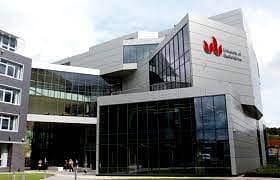This course provides you with those all-important real-life experiences. The course will enable you to learn from your experience of managing real projects by critically assessing a range of project management methodologies/bodies of knowledge, theories, issues, and tools and techniques.
Unit Information - What will I learn?
Units
- Business Dissertation (MAR042-6) Compulsory
- Leading People In Creative Teams (SHR079-6) Compulsory
- Performance Achievement Planning (BSS072-6) Compulsory
- Project And Operations Management (BSS052-6) Compulsory
- Project Management Practice (BSS049-6) Compulsory
- Risk And Procurement Management (BSS054-6) Compulsory
How will I be assessed?
The Course's Assessment Strategy includes: Individual Written Report or Essays: The ability to perform literature informed research, to review and evaluate the relevant sources and to use an appropriate methodology in order to analyze, and evaluate the relevant concepts is being assessed. At the same time, student academic integrity is developed. Case Study Examination: Students will apply their knowledge in the context of specific cases. Oral Presentation: A number of transferable skills will be developed Reflective Report: Own work and that of peers will be evaluated Dissertation / Professional Practice / Business Live Project: Regardless of which masters capstone experience you opt for, you will have to produce an individual, independent piece of work. The three options are equivalent in weighting however, offer three distinct approaches to explore a research problem. The distinction between the three approaches is underpinned by the design of research methodology. You will be asked to identify the research question or problem under investigation, review the relevant literature, and develop a sound methodology in order to explore the problem, proceed with the analysis, discuss your findings and make recommendations. It is the capstone of this course and builds on the knowledge and skills acquired in all Units. It will be one of the most challenging but yet enjoyable and rewarding experiences you will encounter ever! Please refer to the unit information form (UIF) of each of the three options for details. You are expected to make use of the journals, professional bodies and the media in order to keep up-to-date with information, examples, debates, discussions and events in project management. Your enquiry skills will be developed through lectures and workshops. You will be introduced to various research methods, such as survey, interview, focus group, action research, and various quantitative and qualitative analytical techniques. Through the final capstone unit in project management, you will be able to apply some of these methods and techniques to carry out independent research. The notions of accountability and academic integrity will be an integral part of your course. You will be informed about what plagiarism is and how to avoid it during the delivery of each Unit. Where an individual project is required you will be asked to show the different stages of your work or to present it in its entity upon completion. Where collaborative tasks are assigned, an individual reflective report or individual viva may be required to indicate your contribution to the team. All coursework assignments will require a thorough evaluation of the sources used and referencing will be done according to the Harvard Referencing System As mentioned in an earlier section, a range of assessment methods will be used throughout the course and students will be required to undertake a variety of assessments, including individual reports, essays, case studies, oral presentations, reflective report, and a final course project - Business Dissertation, Professional Practice, or Business Live Project. The assessments are designed to test students knowledge and understanding of the subject matter, but also to demonstrate the range of skills identified in the section above. Students will also experience some formative assessment activities designed to support the development of their knowledge and skills. The purpose of such assessment is to enable them to monitor and improve their performance. For example, they will have the opportunity to discuss a report structure before completing the report, to present concepts/findings through presentations and receive feedback before producing a final report or presentation. In preparation for exams, they will have opportunity to attempt revision questions with guidance on how to address these, with appropriate solutions.
